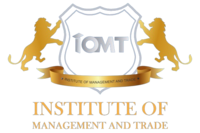
This role has a moderate level of AI exposure. AI can enhance efficiency for some tasks, but this job still relies on human skills and decision-making.
Explore all careersMechanical Fitters assemble and repair machinery using metal parts, assessing materials and ensuring equipment performance.
Get qualified to work as a Mechanical Fitter with a course recognised across Australia. Speak to a training provider to learn more.















In Australia, a full time Mechanical Fitter generally earns $1,924 per week ($100,048 annual salary) before tax. This is a median figure for full-time employees and should be considered a guide only.
 Courses.com.au Team
Courses.com.au Team
The occupation of Mechanical Fitter has experienced stable numbers over the past 5 years. It is predicted that there will be a moderate growth in the number of Mechanical Fitter roles in the coming 5 years.
Source: Australian Government Labour Market Insights
 Courses.com.au Team
Courses.com.au Team
To obtain a role as a Mechanical Fitter, you will need a relevant tertiary qualification. The Advanced Diploma of Electrical and Instrumentation Engineering for Oil and Gas Facilities and the Advanced Diploma of Electrical and Instrumentation Engineering in Mining both serve as a pathway to this career. Once you become a Mechanical Fitter, you may be required to complete additional short courses to undertake particular tasks in the workplace like driving a forklift.
 Courses.com.au Team
Courses.com.au Team
Browse occupations related to Mechanical Fitter



If you're considering a career as a Mechanical Fitter, the Australian Capital Territory offers a range of opportunities with dedicated training and education options. Whether you're starting fresh with no prior experience or looking to enhance your existing qualifications, you can find suitable Mechanical Fitter courses in Australian Capital Territory to meet your needs. With a total of 10 courses available, this is your chance to dive into a rewarding field that combines theoretical knowledge with hands-on training.
For beginners, there are nine introductory courses, perfect for those who want to make their mark in the mechanical trade. A great starting point is the Certificate III in Engineering - Mechanical Trade (Fitting Trade) MEM30219. This comprehensive course provides essential skills and understanding of mechanical systems, allowing you to get a firm footing in the industry. Alongside it, courses like the Certificate III in Engineering - Fixed and Mobile Plant Mechanic MEM31419 are also excellent options for aspiring fitters.
If you already possess experience in the mechanical field, consider advancing your skills with the Certificate IV in Engineering MEM40119. This course is designed for experienced learners and equips you with higher-level competencies that can lead to greater job prospects and career growth. Enhancing your qualifications not only benefits you professionally but also positions you as a valuable asset within an organisation.
The Mechanical Fitter profession is interconnected with various fields of study such as engineering, mining, oil and gas, and manufacturing engineering. Pursuing courses in these interconnected fields can significantly enrich your qualifications, allowing you to explore diverse pathways in your career as a Mechanical Fitter. This versatility makes mechanical fitting a solid choice for anyone enthusiastic about engineering and practical problem-solving.
With so many options available, taking the step to enrol in one of the Mechanical Fitter courses in Australian Capital Territory is an empowering decision. Each course is delivered by recognised training providers who are dedicated to ensuring you receive quality education and up-to-date industry knowledge. Whether you choose a beginner course like the Certificate III in Mobile Plant Technology AUR31220 or aim for higher qualifications, you are set to embark on a fruitful career adventure. Explore your options today and take the first step toward your future in mechanical fitting!